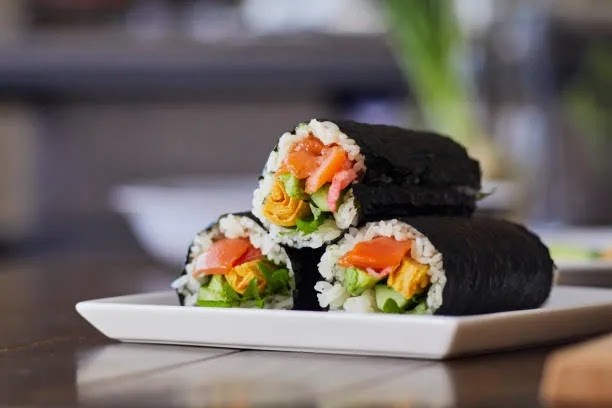Is it genuinely good for you to eat? We got advice from experts.
Nothing beats rice as a side dish. This grain can go with almost everything and, depending on the variety, can provide a variety of health-promoting nutrients to keep you going throughout the day. No one can deny that serving rice with your meals might help you feel fuller, but have you ever questioned what happens to your body when you consume rice?
With so many rice kinds available, knowing the ins and outs of what each type does can be confusing. If you enjoy this grain and want to learn more about what happens to your body when you consume it, your wait is now over. We asked a few health and nutrition experts to explain when we eat rice regularly.
Please continue reading to learn more about the effects of rice on our bodies.
Inflammation can cause severe damage quickly, so choose your rice carefully.
"White rice is a moderately processed version of brown rice," says Balanced One Supplements' Trista Best, MPH, RD, LD. "As a result of this process, white rice is categorized as a simple carbohydrate. This type of carbohydrate is easily broken down and utilized by the body for energy. If you're suffering bloating or inflammation, you might be eating too many refined carbohydrates. This is due to the fact that refined carbohydrates produce inflammation in the body and lead the body to absorb more water than usual."
If you want to reduce inflammation, eat brown rice.
It's no surprise that rice is served with so many dishes. This grain might make you feel fuller because of its particular nutritional structure, which takes impact as soon as it enters our stomachs.
"Rice is high in fiber, which helps you feel full and satisfied for longer," explained Meghan Sedivy, RD, LN. "Brown rice has more fiber than white rice, and your body uses the fiber levels to keep your digestive system running smoothly whether you eat either."
Portioning out your rice at every meal is essential to maintain track of your blood glucose levels.
"Your blood sugar will rise shortly after eating a dish of rice—how much and how quickly it rises depends on the type of rice you're eating," Megan Wong, RD, explains. "Because rice is a source of carbohydrates, and all carbohydrates eventually break down into sugars, your blood sugar will rise."
"In general, short-grain white rice—which includes sushi rice, Jasmine rice, sticky rice, and Calrose rice—raises blood sugars the highest and fastest," Wong writes. "However, long grain rice—even white rice—is better for keeping blood sugars stable."
Wong further adds that rice has two carbohydrates: amylose and amylopectin.
"Long grain rice contains more amylose, which keeps its structure better than amylopectin," Wong explains. "This indicates that each grain of rice is more solid, therefore chewing and digesting it takes longer, slowing the digestive process overall. Because the added fiber slows digestion even more, long-grain brown rice is your best bet for enjoying rice without causing blood sugar spikes."
We sometimes forget about all of the healthy bacteria in our Gastrointestinal system, but rice, happily, helps to keep these microscopic organisms alive, even when we don't realize it.
"If the rice is allowed to cool after cooking, the starch converts into a resistant starch," explained Lindsay Allen, MS, RDN. "Because our bodies are unable to absorb all of the starch, it will pass undigested into the colon, where it will nourish our beneficial bacteria. Resistant starch raises blood sugar levels, but at a much slower and more gradual rate. This means we stay fuller for longer and avoid the negative effects of fluctuating blood sugar levels."
"Adding vinegar to the rice slows absorption even more," Allen explains. "Sushi rice is a great example of this rice combination."
If you enjoy eating a bowl of rice, you may have an unexpected effect that you would never associate with a grain.
"The husk, bran, and germ of the grain are removed from white rice, which reduces the fiber and vitamin content," says Diana Gariglio-Clelland, RD. "Because fiber promotes digestive regularity, consuming a lot of low-fiber grains like white rice might cause constipation."
When it comes to processed grains, we must be careful not to overdo it, or we might expect to gain a few sizes.
"White rice has experienced a level of processing that removes the bran and germ," explains Lisa Richards, CNC. "Many important vitamins and nutrients, including vitamins E, B, and fiber, have been removed as a result of these two elements. White rice is processed more quickly by the body, resulting in less satisfaction and the desire to eat more or more frequently. Overeating and weight gain follow as a result."







